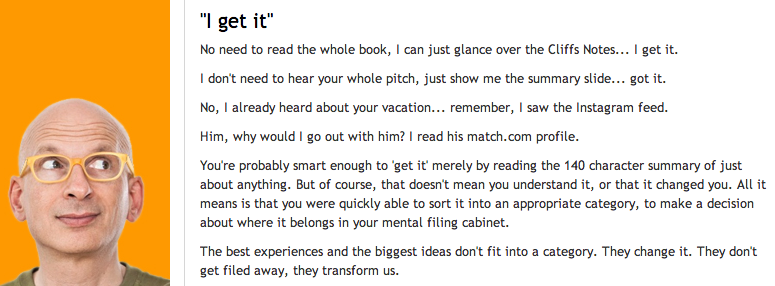When I was bullied in middle school, I remember thinking, “These guys aren’t going to change who I am!”
When I attended summer camp, I remember kids crying at the insight into their lives they’d achieved, and thinking, “That’s not going to be me! I know who I am!”
When I went to the fundamentalist church, I remember thinking, “There’s no way these folks are going to change who I am!”
When I attended my doctoral classes, I remember thinking, “There’s no way I’m going to let this change who I am!”
In the blog entry above, Seth Godin points to an important point–the best experiences and biggest ideas change how we organize our world, transforming us.
While reading Naturalizing Digital Immigrants: The Power of Collegial Coaching, I stumbled upon how coaching actively “engages educators in reflecting upon their current and immediate teaching practices, and it encourages participants to become manufacturers of their own pertinent knowledge.”
Isn’t that amazing? Each of us has to experience something, reflect on how it changes us, to make it relevant. In their book, Dr. Dawn Wilson and Dr. Katie Alaniz shares two types of reflection:
- Reflection-in-action – This represents the “capacity to reflect prior to a circumstance in which clear-cut solutions and scientific models are irrelevant.”
- Reflection-on-action – This involves a process of reflecting upon the incident after the fact.



1 Comment